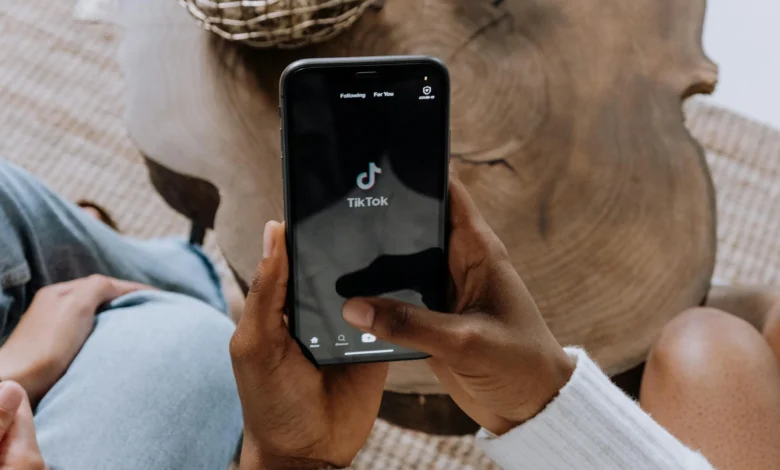How to Block People On TikTok Ensuring Your Safety on Social Media

In the vibrant world of social media, TikTok has surged to the forefront, captivating the hearts and screens of millions globally. With its high-energy videos and an incredibly diverse community, TikTok’s magnetic appeal is undeniable. However, in this vast digital landscape, ensuring your safety and privacy is pivotal. Learning how to block someone on TikTok is a crucial step toward securing your space in the TikTok ecosystem. In this comprehensive guide, not only will we walk you through the process of blocking someone, but we’ll also discuss why and when you might need to resort to this measure. We’ll also explore alternatives to blocking and provide additional tips on managing your online interactions.
How to Block Someone on TikTok
Whether it’s to prevent someone from viewing your content, interacting with your account, or simply to curate your experience, knowing how to block is empowering. The steps are relatively straightforward:
Step 1: Go to the Profile of the User You Want to Block
Navigate to the user’s profile by searching their username or finding them in your followers or following list.
Step 2: Tap the Three Dots on Their Profile
On the top right corner of their profile, you’ll find the ‘More’ option represented by three horizontal dots. Tap this to reveal the options menu.
Step 3: Select ‘Block’ and Confirm the Action
From the options menu, choose ‘Block’ and TikTok will ask for a confirmation. Once you confirm, the user will be blocked from interacting with you on the platform.
Please note that if you’ve been harassed or feel unsafe, it’s important to also report the user to TikTok in addition to blocking them. This helps the community and the platform maintain a safer environment for everyone.
Why You Might Need to Block Someone
Blocking someone on TikTok might feel like a drastic measure, but there are plenty of valid reasons for doing so.
Addressing Harassment and Inappropriate Content
One of the most common and pressing reasons for blocking a user is encountering harassment or inappropriate content. TikTok, like all social media, unfortunately, can be a platform for negative interactions. If a user’s comments or content are causing distress or discomfort, blocking is a powerful tool to put a stop to it.
Protecting Personal Privacy
In a space where your content can reach a wide audience, privacy concerns are natural. If you feel someone is too intrusive or you’d like to keep your content away from a certain individual, blocking becomes a means of self-protection.
Managing Your Experience
At times, managing your TikTok feed is a matter of preference. If a certain user’s content consistently doesn’t resonate with you, or you’re not interested in their interactions with your account, the block feature allows you to refine the quality of engagement you have on the platform.
Parental Management
For parents and guardians, being able to monitor and control your child’s interactions on TikTok is paramount. Blocking unwanted users can be a practical method for safeguarding your child’s digital experience.
Alternatives to Blocking
Before you block, consider less drastic measures. TikTok, like many platforms, offers a range of tools and resources to deal with unwanted interactions.
Reporting Users
TikTok provides a robust reporting system that can be used to flag inappropriate behaviors or content to the platform’s moderators. Reporting may lead to more widespread actions against unwanted users and can sometimes be more effective than blocking alone.
Adjusting Your Privacy Settings
TikTok allows you to manage who can interact with you or view your content. By adjusting these settings, you may prevent unwanted users from impacting your experience without fully cutting them off.
Muting Features
If a user’s content is the main issue, you might choose to mute their content or comments. This way, you continue to use the platform without the need to interact with that particular user’s content.
Communicate Your Preferences
In some cases, a direct message to a user explaining your discomfort with their interactions can be enough to resolve an issue. This open communication might lead to better interactions or a mutual decision to disconnect without resorting to blocking.

Conclusion
Understanding how to maneuver through the intricacies of blocking someone on TikTok is a skill that empowers you to curate a personalized, safe, and enjoyable social media experience. By recognizing the various contexts in which blocking can be used, you take an active role in shaping the environment you wish to participate in. Remember, the ultimate goal is to foster a community where everyone feels respected and heard. Engage with your privacy settings, utilize the reporting tools judiciously, and most importantly, feel confident in navigating the digital expanse.
In this post, we’ve unpacked the process of blocking someone on TikTok, examined the underlying reasons to employ this feature, and presented alternative strategies for managing your online community. Empower yourself with the knowledge contained here, and share it with others to amplify the message of digital safety. After all, in a world where our online presence is an extension of our personal lives, the onus is on each of us to cultivate a space that’s welcoming and secure. Be proactive, be informed, and enjoy TikTok not just as a consumer, but as a curator of your own digital destiny.



